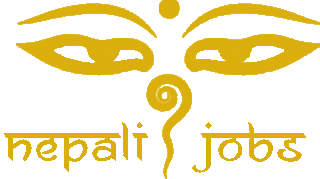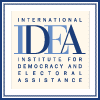The International Institute for Democracy and Electoral Assistance — International IDEA is an intergovernmental organization that supports sustainable democracy worldwide. International IDEA’s mission is to support sustainable democratic change by providing comparative knowledge, and assisting in democratic reform, and influencing policies and politics.
International IDEA acts as a catalyst for democracy building; by providing knowledge resources, policy proposals and supporting democratic reforms in response to specific national requests. It works together with policy makers, governments, UN organizations and agencies and regional organizations engaged in the field of democracy building.
International IDEA develops, shares and enables the use of comparative knowledge in its key areas of expertise: electoral processes,constitution building,political participation and representation, democracy and development and democracy assessments.
It also addresses the important issues of gender, diversity, and conflict and security as they relate to democracy.
International IDEA is based in Stockholm, Sweden, and works worldwide through offices in New York, Brussels, The Hague, Latin America, Africa and Asia.
Senior Programme Officer (Local Position) – Kathmandu
Context
International IDEA, an intergovernmental organization with Member States in all continents, aims to support sustainable democracy worldwide, working with both new and long established democracies, helping to develop the institutions and culture or democracy. At the interface between research, field experience and the donor community, International IDEA provides a forum for dialogue and uses comparative experience, analysis and dialogue with practitioners to identify examples of good practices and produce tools and guidelines on democracy support. It builds networks of experts, develops training materials and provides strategic advice at international, regional and national level, working in partnership with a range of institutions.
In 2015, the Ministry of Federal Affairs and Local Development (MoFALD) and DFID commissioned a study on the coherence of development programming and service delivery at the local level, focussed on one example district (Dailekh). This study found that development programming and service delivery is highly fragmented, implemented through multiple independent ‘silos’ or project pipes, and based upon concepts of recipients as ‘users’ of services, not citizens with rights.
Also in 2015, Nepal entered into a period of major transition with the promulgation of the new Constitution in September of that year. The new constitution proposes a federal, multi-party democratic system of governance, with a commitment to end all forms of discrimination, recognising unity in diversity. It commits to achieve this by devolving power to local and provincial levels.
This provides an important opportunity to support the opening of policy debate about options and trade-offs to remedy the problems identified in the Dailekh study, as well as operationalise the vision of the Constitution.
International IDEA, Nepal and DFID Nepal have agreed a joint project to support local government coherence (the Project).
This programme explicitly joins informed policy debate and thinking with practical, operational engagement with existing DFID programmes on the ground. The goal is to improve coherence in local development, increase the availability of discretionary resources that can respond to local priorities and reduce fragmentation at the local level.
The practical work of the programme will focus in one or two regions and – working with DFID implementing partners and MoFALD – look for ways to improve coherence of programming (in terms of efficiency and political accountability), focusing on large DFID programmes. This will involve reducing the types of duplication and overlap identified in the Dailekh Mapping Study. It will use practical engagement to understand the implications of the Constitution, the new elected bodies and federalism. It will bring together key influencers with DFID advisers and implementing partners in the field and in Kathmandu to workshop, brainstorm and change practice. Where there are obvious gaps in practice, technical assistance will be made available to support improvements (e.g. for poverty mapping, monitoring etc.).
Duties and Responsibilities
- Supports the implementation of the Project through direct engagement with all stakeholders at the local level;
- Leads in building partnerships with key local leaders in political parties, civil society groups and service providers to advance the work of the Project;
- Directly implements all local level components of the programme including facilitation of multi-stakeholder dialogues and coordination and management of Project consultants working in the field;
- Undertakes representational functions as delegated;
- Undertakes research and draws upon relevant International IDEA knowledge resource networks and tools to respond to topical issues pertaining to local governance, local service delivery and all other topics related to the Project;
- Contributes local level input to the Project’s political and economic analysis including collecting information and analysis from local stakeholders;
- Advises the Programme Manager on all matters pertaining to Project related developments;
- Facilitates the engagement of International IDEA staff in order to achieve project goals;
- Contributes to oversight of Project funds in accordance with donor and International IDEA regulations;
- Contributes to the procurement processes by defining for instance terms of reference as needed;
- Assists in the sourcing of local consultants;
- Contributes to monitoring and evaluation of the Project activities in accordance with donor and International IDEA rules and procedures;
- Contributes to Project-related progress reports.
General Profile
- Combines in-depth knowledge, acquired through post-graduate academic achievements, excellent skills and significant experience in their field;
- Contributes to assigned projects with authority, and provides policy analysis as appropriate;
- Is committed to democratic accountability and political devolution;
- Contributes to publications; is recognized as an expert in his/her broad professional community;
- Has the intellectual leadership to integrate innovation into his/her field of expertise;
- Has strong professional curiosity, willing to learn as much from what doesn’t work as what does work;
- Openness to new thinking and evidence on development and governance (eg Doing Development Differently, Thinking and Working Politically, Adaptive Programming);
- Fosters team-based activities; collaborates with other entities of the Institute;
- Acts as a model and mentor for less experienced colleagues;
- Is expected to travel globally to any geographical area involved in his/her projects;
- Follows internal procedures to ensure high standards of performance and compliance with Institutional guidelines;
- Integrates a gender and diversity perspective in all activities.
Programmatic Knowledge
- Has expert knowledge and extensive work experience in own discipline, combined with excellent understanding of related disciplines in order to approach programmatic issues in a holistic manner;
- Knowledge and direct experience in local governance, specifically democratic accountability, gender, social diversity and media an advantage.
Operational Knowledge, skills and experience
- Integrates learning into the design, management and evaluation of all his/her programmatic activities, is prepared to test assumptions and change direction as the context and/or understanding evolves;
- Has thorough understanding of relevant programmatic issues in the key geographical zone where his/her work is implemented;
- Illustrates integrity, a collaborative spirit, a sense of achievement, and an understanding of risk management.
Leadership
- Some people management responsibility over national consultants is expected;
- Acts as a model and resource for colleagues.
Problem Solving
- Will solve complex challenges, approach issues with new perspectives, and analyze situations from a multitude of intervening factors;
- Creates a culture of learning and learning as much from what does not work as what does
Impact
- Has a clear impact on the programme development and delivery;
- Will also impact other teams and projects in related fields.
Communication and Interpersonal Skills
- Liaises permanently to all internal and external stakeholders involved in his/her project; acts and is perceived as an initiator of relevant communication to solve issues;
- Drives projects and assignments through communicative personal energy and engagement;
- Can explain sensitive information with diplomacy, and build consensus;
- Is able to present his/her activities and represent International IDEA effectively in all professional circles;
- Fluency in English and Nepali i.e. oral and written proficiency, is required.
Education and Experience
- Post-graduate qualifications in political science, law, international relations, public administration or other related disciplines;
- Minimum of eight (8) years relevant experience preferably in the area of local governance / democratic accountability and with international organizations.
Terms of Contract
Local Post. Two (2) year contract. Salary NPR 236,806 per month
Please note as this is a local post, International IDEA will bear no costs relating to relocation of the selected candidate to the duty station. This position is open to those legally authorized to live and work in Nepal.
Deadline for applications:
Applications should be submitted no later than 20 January 2017. Please note that all applications must be made in English.
International IDEA is an equal opportunity employer which seeks to further diversify its staff in terms of gender, culture and nationality.


